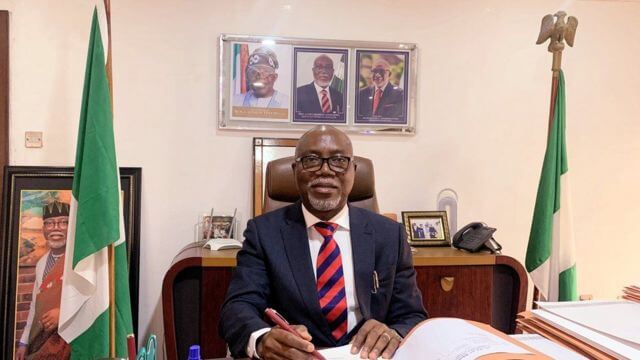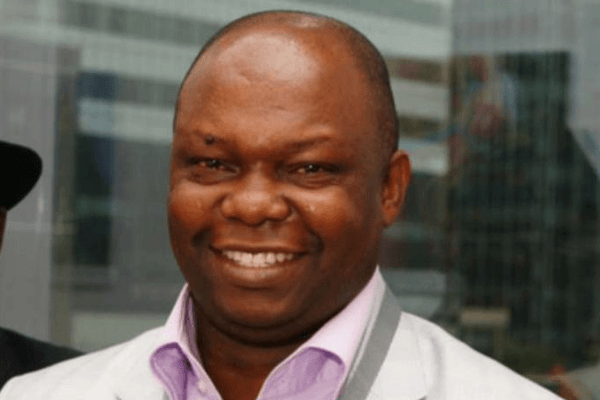The International Day to End Impunity for Crimes against Journalists (IDEI) is a UN recognized international day observed annually on November 2. The day draws
attention to the level impunity for crimes against journalists which remains extremely high globally.
The 2024 edition of the event marks the 10th anniversary of the first IDEI held in 2014 after the landmark establishment of the day by the UN General Assembly in resolution 68/163.
The 2024 edition of the day also commemorates the 20th anniversary of the mandate of the Special Rapporteur on Freedom of Expression and Access to Information of the African Commission on Human and Peoples Rights in 2004, whose role is pivotal in safeguarding Freedom of Expression and Safety of Journalists in Africa.
The IDEI 2024 Global commemoration is therefore an opportunity to reaffirm commitments to promoting and guaranteeing freedom of expression worldwide,strengthening international cooperation in ensuring safety of journalists and media workers in crises and emergencies, and engaging national, regional and international stakeholders in finding solutions to address issues and challenges specific to Africa.
The theme for IDEI 2024, Safety of Journalists in Crises and Emergencies is aligned with the objectives of the United Nations’ 2023 Agenda for Sustainable
Development, specifically Goal 16, to “promote a peaceful and inclusive societies for sustainable development, provide access to justice for all and build effective,accountable and inclusive institutions at all levels”. It also corresponds to the objectives of the UN Plan of Action on Safety of Journalists and the issue of impunity, which calls for a collation based and holistic approach to ensuring free and safe environment for journalists and media worker
The theme also aligns with the African Union Agenda, 2063 under the Aspiration which seeks to promote “an Africa of good governance, democracy, respect for human rights, justice and the rule of law” as well as Aspiration 4, which seeks to promote “a peaceful and secured Africa”.
Furthermore, the theme is aligned to Principle 20 on Safety of Journalists and other media practitioners contained in the “Declaration of Principles on Freedom of
Expression and Access to Information in Africa (the 2019 Declaration) adopted by ACHPR in 2019, which provides, inter alia, that “States shall guarantee the safety of journalists and other media practitioners”.
Therefore, this year theme reaffirms and reinforces the common purpose between the UN system and the AU in promoting an enabling environment for journalists as the foundation of peace, democracy, accountability, transparency and good governance.
Many journalists, media professionals and associated media personnel exercise their duties in highly dangerous contexts. Too many pay high prices, including death,enforced disappearance, torture, unlawful detention and kidnappings for producing independent, reliable and verifiable information.
According to UNESCO’s observatory of killed journalists, killing of journalists in countries experiencing conflicts have risen, based on figures collected over the 2022-2023 biennium, highlighting a reversal of the previous five-year decrease in conflict related killings since 2017.
Given this trend, Africa has the highest number of ongoing conflicts, according to the Secretary-General’s Report on the Protection of Civilians in Armed Conflicts in 2023. UNESCO’s monitoring figures indicate that by July 2024, at least 14 journalists have been killed in Africa in 2023-2024, the majority of whom were killed in countries experiencing conflicts.
Journalists working in climate disasters and other emergency situations are affected by similar threats and challenges to their safety. In May 2024, while commemorating World Press Freedom Day, UNESCO released a report revealing that 70% of journalists reporting on environmental had been attacked in connection with their work! Whether reporting on conflict, humanitarian disasters, climate or health crises, journalists continue to face disproportionate threats and high level of impunity for extrajudicial killings, torture, enforced disappearances and arbitrary detention, as well as intimidation and harassment. In Africa, the same report recorded 26 p
However, in Nigeria, journalism remains extremely hazardous as journalists are exposed to all forms of dangerous and precarious situations. To be gainfully employed as a well groomed and qualified journalist is not easy, in fact it is arduous. Those who are lucky to be employed are not well remunerated and those remunerated are not being paid as at when due.
A profession that has a constitutional obligation to monitor governance is not helped when salaries are owed and workers are even encouraged to sustain on crumbs that drops from the tables of those whose activities they cover. All these pave way for charlatanism.
On a day like this, the Society for Journalism Enhancement Initiatives (S4JEI) will continue to raise awareness on the risks and challenges faced by journalists in crises and emergencies, including threats, harassment and violence.
We will keep advocating for end to impunity for crimes against journalists and ensuring justice for victims by enhancing legal and institutional frameworks to safeguard journalists especially in conflicts and emergency situations.
We will continue to raise awareness in promoting press freedom and protecting journalists.
*Gbemiga Bamidele,Ph.D is the Convener, Society for Journalism Enhancement Initiatives (S4JEI)





